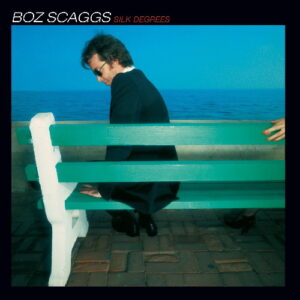(January 30, 2019) Here’s some news for Motown fans: We’ve just found out that the Four Tops have replaced lead singer Harold “Spike” Bonhart with J. Alexander “Lex” Morris, a minister with a powerful voice who also runs Los Angeles based J. Alexander Morris Ministries. Bonhart had joined the Tops in 2011, replacing longtime member and former Temptations singer Theo Peoples. The Tops now consist of founding member Abdul “Duke” Fakir, Roquel Payton (son of original member Lawrence Payton) and Ronnie McNeir.
One of the greatest groups to ever come out of Detroit consisted of four singers who made history with their music and their longevity, only being separated by death.
Formed in the mid-50s as high schoolers in Detroit, Levi Stubbs, Obie Benson, Lawrence Payton and Duke Fakir were first known as the Four Aims. However, to avoid confusion with the popular Ames Brothers vocal quartet, the group changed its name to the one that would become synonymous with Detroit’s “Sound of Young America. ” After cutting several unsuccessful tracks for various record labels in the late 50s and early 60s, the Tops signed with Berry Gordy’s Motown label and teamed with super songwriters Holland/Dozier/Holland. Their first collaboration, “Baby I Need Your Lovin,” was a smash crossover hit and set the stage for future successes.
The Tops rose to the A-list of soul music stars and became, along with the Temptations, the male group leaders of the Motown hit machine. However, the differences between the Tempts and the Tops couldn’t have been more stark. The Temptations had the good looks, the choreography and the silky smoothness, but also had constant turmoil, as over 20 singers (including half a dozen lead singers) would serve time as Tempts. The Tops, on the other hand, were the working fan’s group. Neither great dancers nor as suave as the Tempts, the Four Tops were nonetheless amazingly cohesive as a group and had something no other group did – the incomparable voice of lead singer Levi Stubbs. His bellowing, impassioned wail was the perfect contrast to the ultra-slick Motown arrangements, and created some classic Motown moments, from “Reach Out, I’ll Be There” to “I Can’t Help Myself” to “Bernadette.” In all, they had over two dozen hits on Motown during the period 1964-1972 and established themselves as one of the top Soul groups of the era.
 They continued with ABC for the rest of the decade until the hits stopped coming and the record label folded. As the 80s arrived, the Four Tops found themselves without a record contract and facing irrelevancy in the fickled world of popular music. Then unexpectedly they found a third life as a group, signing with Casablanca Records and releasing the smash hit, “When She Was My Girl,” and the successful album Tonight.
They continued with ABC for the rest of the decade until the hits stopped coming and the record label folded. As the 80s arrived, the Four Tops found themselves without a record contract and facing irrelevancy in the fickled world of popular music. Then unexpectedly they found a third life as a group, signing with Casablanca Records and releasing the smash hit, “When She Was My Girl,” and the successful album Tonight.








